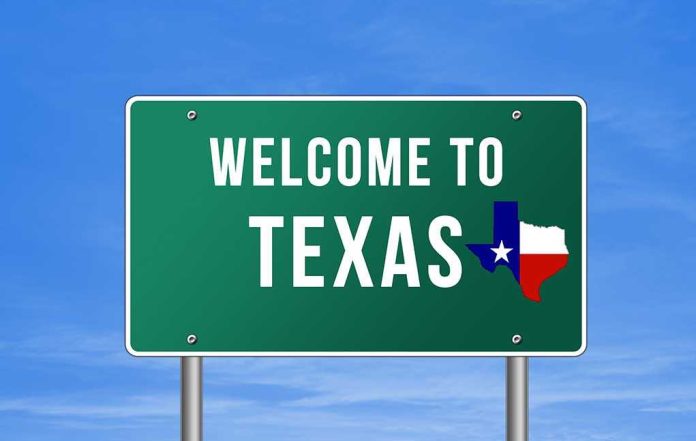
Valentina Gomez’s Quran-burning stunt in Texas exposes a dangerous escalation in political provocation, igniting national debate about the boundaries of free speech, hate, and the values at America’s core.
Story Snapshot
- Texas congressional candidate Valentina Gomez set social media ablaze by burning a Quran in a campaign video, drawing swift condemnation across the spectrum.
- The viral video was rapidly removed from X (formerly Twitter) for violating hate speech policies, highlighting ongoing tensions between free speech and platform moderation.
- Gomez’s repeated use of violent stunts and inflammatory rhetoric raises concerns about the normalization of hate in American politics.
- Advocacy groups and civil rights organizations warn this incident could fuel real-world violence and erode constitutional values.
Quran-Burning Stunt Sparks Uproar Ahead of Texas Election
Valentina Gomez, a congressional candidate in Texas and MAGA-aligned influencer, ignited fierce controversy in late August 2025 when she posted a campaign video featuring the burning of a Quran and an openly anti-Muslim speech. The video, intended as a rallying cry for her base, quickly went viral and was removed from X for violating hate speech rules.
This latest stunt fits a pattern of provocative acts Gomez has used to generate attention, previously staging mock executions and advocating violence against undocumented immigrants. Her tactics have drawn condemnation from advocacy groups, social media users, and civil rights organizations, who argue that such behavior crosses the line from free speech to incitement of hatred and violence.
The escalation of incendiary rhetoric and performative violence in political campaigning is not new, but Gomez’s actions represent a sharp intensification. In the context of the 2026 Texas congressional race, her campaign has deliberately centered on divisive identity politics and the deliberate provocation of minority groups.
Previous incidents, such as Quran burnings in Michigan and anti-Muslim protests, have set troubling precedents and often triggered broader backlash. Gomez’s reliance on social media has amplified her message’s reach, but also hastened its removal once it violated platform policies. Despite the backlash, Gomez remains defiant, reiterating her anti-Muslim stance and further polarizing the public conversation.
Condemnation and the Battle Over Free Speech
Advocacy organizations, led by the Anti-Defamation League, responded swiftly to condemn the Quran-burning act as a blatant incitement of hate and a threat to public safety. Civil rights groups have warned that normalizing such rhetoric increases the risk of real-world violence and undermines the social fabric of American communities.
Social media platforms, meanwhile, find themselves under renewed pressure to balance the protection of free speech with the need to curb incitement and hate speech online. While some far-right supporters defend Gomez’s actions as protected speech, the overwhelming response from mainstream political voices has been one of alarm and censure.
The Texas GOP faces criticism for failing to decisively distance itself from such rhetoric, raising questions about the party’s responsibility to uphold constitutional values.
For Muslim communities, especially in Texas, these events have heightened anxiety and fear, spotlighting persistent vulnerabilities to hate crimes and discrimination. Advocacy groups have called for law enforcement and political leaders to take stronger action against incitement, warning of a chilling effect on civic participation among minorities.
At the same time, the episode has sparked broader debate about the limits of political expression and the responsibilities of public figures to avoid stoking division and violence. The ongoing controversy underscores the need for principled leadership that defends both constitutional liberties and civil society’s basic norms.
Societal Risks and Constitutional Values in the Crosshairs
The normalization of hate-driven campaign tactics carries profound risks for American democracy. Experts and advocacy organizations caution that repeated acts of incitement—using religious symbols as targets—can erode social cohesion and embolden extremists. While free speech is a foundational American principle, its abuse to promote violence and exclusion undermines the very freedoms conservatives hold dear.
As political figures exploit shock tactics for personal gain, the line between legitimate discourse and dangerous provocation becomes ever more blurred. Social media’s rapid-fire dynamics further complicate efforts to maintain civil debate and protect vulnerable communities.
In this environment, upholding constitutional values requires vigilance not just against government overreach, but also against those who weaponize speech to divide rather than unite.
Limited data is available regarding any legal or disciplinary action against Gomez as of this writing. However, the incident has intensified scrutiny on both the candidate’s campaign and the broader political climate, with advocacy organizations pledging to monitor future developments closely.
The episode serves as a stark reminder that the defense of American values demands both a commitment to liberty and a rejection of hate, no matter its source.
Sources:
Arab News: Coverage of Valentina Gomez’s Quran-burning stunt and reactions
The Mooknayak: Shocking hate speech at Agra Bhagwat Katha
Muslim Network TV: Context on the normalization of anti-Muslim rhetoric in politics
Times of India: Precedents of Quran-burning and anti-Muslim protests in the US




